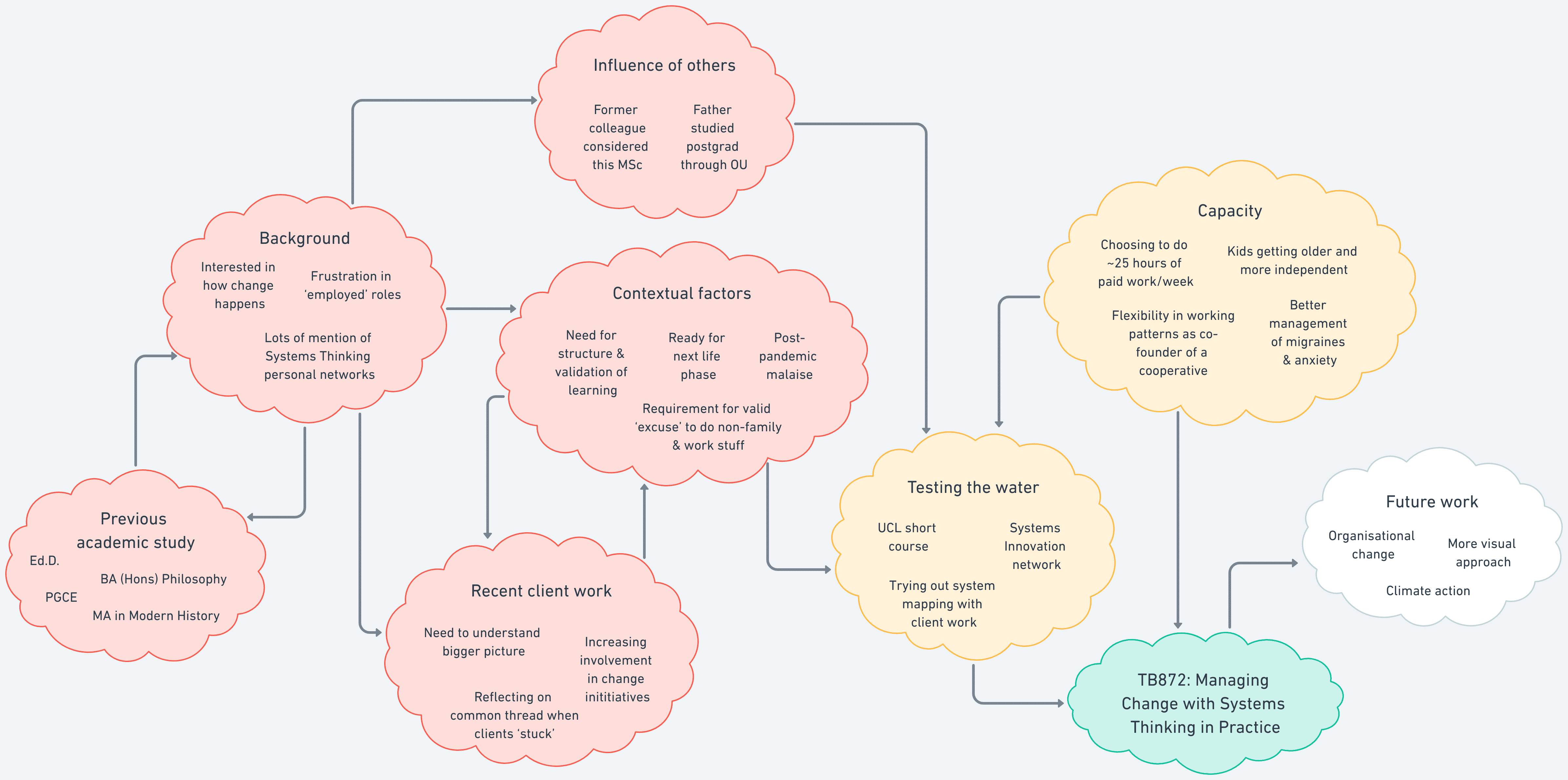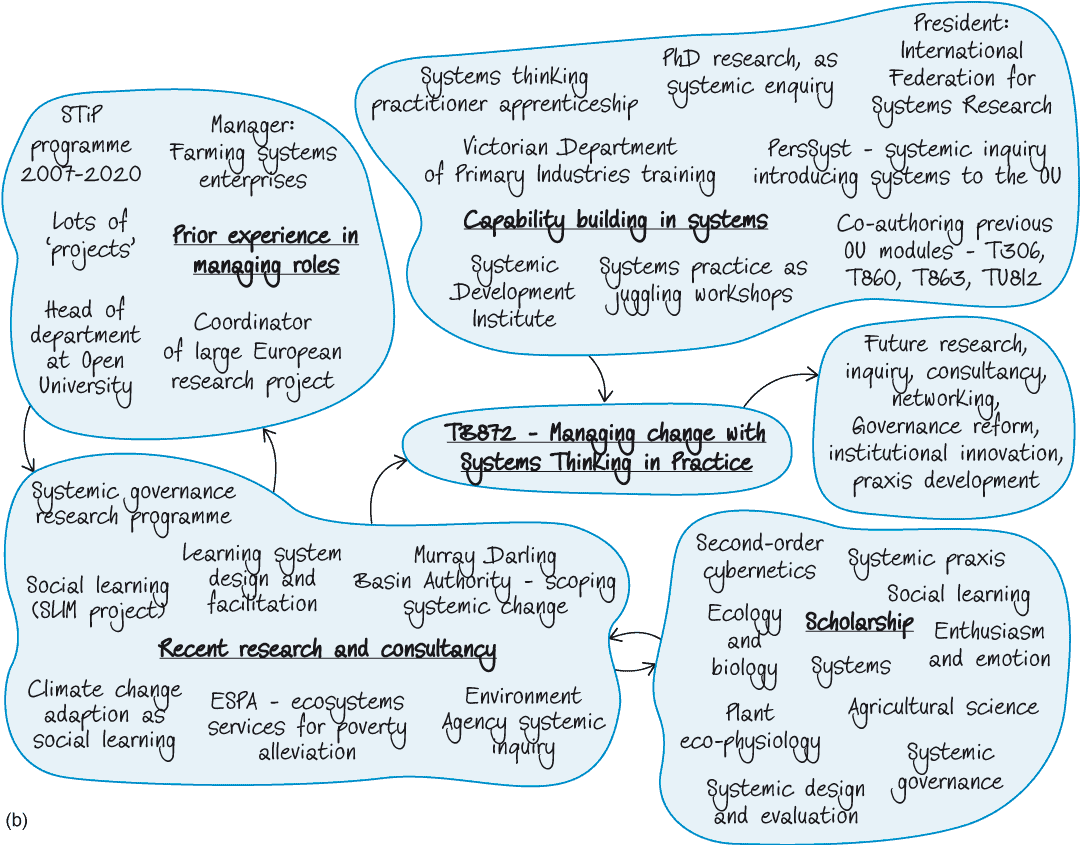TB872: Mapping my arrival trajectory
Note: this is a post reflecting on one of the modules of my MSc in Systems Thinking in Practice. You can see all of the related posts in this category.

(click to enlarge)
The above diagram is a ‘trajectory map’ showing my arrival at module TB872: Managing Change with Systems Thinking in Practice. The approach comes from Etienne Wenger’s work around communities of practice to help them understand their identities in relation to others, as well as their past, present, and future trajectory.
[Trajectories] give significance to events in relation to time construed as an extension of the self. They provide a context in which to determine what, among all the things that are potentially significant, actually becomes significant learning. A sense of trajectory gives us ways of sorting out what matters and what does not, what contributes to our identity and what remains marginal.
(Wenger, 1998, p. 155, cited in TB872 module guide)
There were two examples given to us, one of which you can see below:

You may think that mine doesn’t look much like the example, and you’d be correct. However, I have a preference for using digital tools and so used Whimsical again. I initially tried Kumu, but couldn’t find an adequate way to represent what I wanted to include.
What is similar are the ‘blobs’ containing information, and the causal arrows pointing to and from each of them. I reorganised my trajectory map after I read that it should have a ‘temporal flow’ to it. In other words, it should be easy for the reader/viewer to understand the order in which things happened. In my case, it reads mainly left to right and top to bottom.
I found this relatively straightforward to do, as I didn’t stumble into this module but had thought carefully about what I wanted to do and why. For example, I had reflected that in the second half of my career I wanted to work on finding leverage points to effect change at scale. Systems Thinking seemed to be a good way of doing this, and fitted with my interests. I looked at the Masters-level courses available and rejected Cranfield’s MSc as it seemed too technology-focused. Likewise, although I enjoyed the UCL Short Course in Systems Thinking that I tried, it was again too technically-minded.
My aim is to use my background in the humanities to think much more on the human side of things. I’ve worked with the Open University before, and my dad loved his postgraduate studies through the OU when I was growing up. It seemed a good, flexible option, and I haven’t been proved wrong so far!

